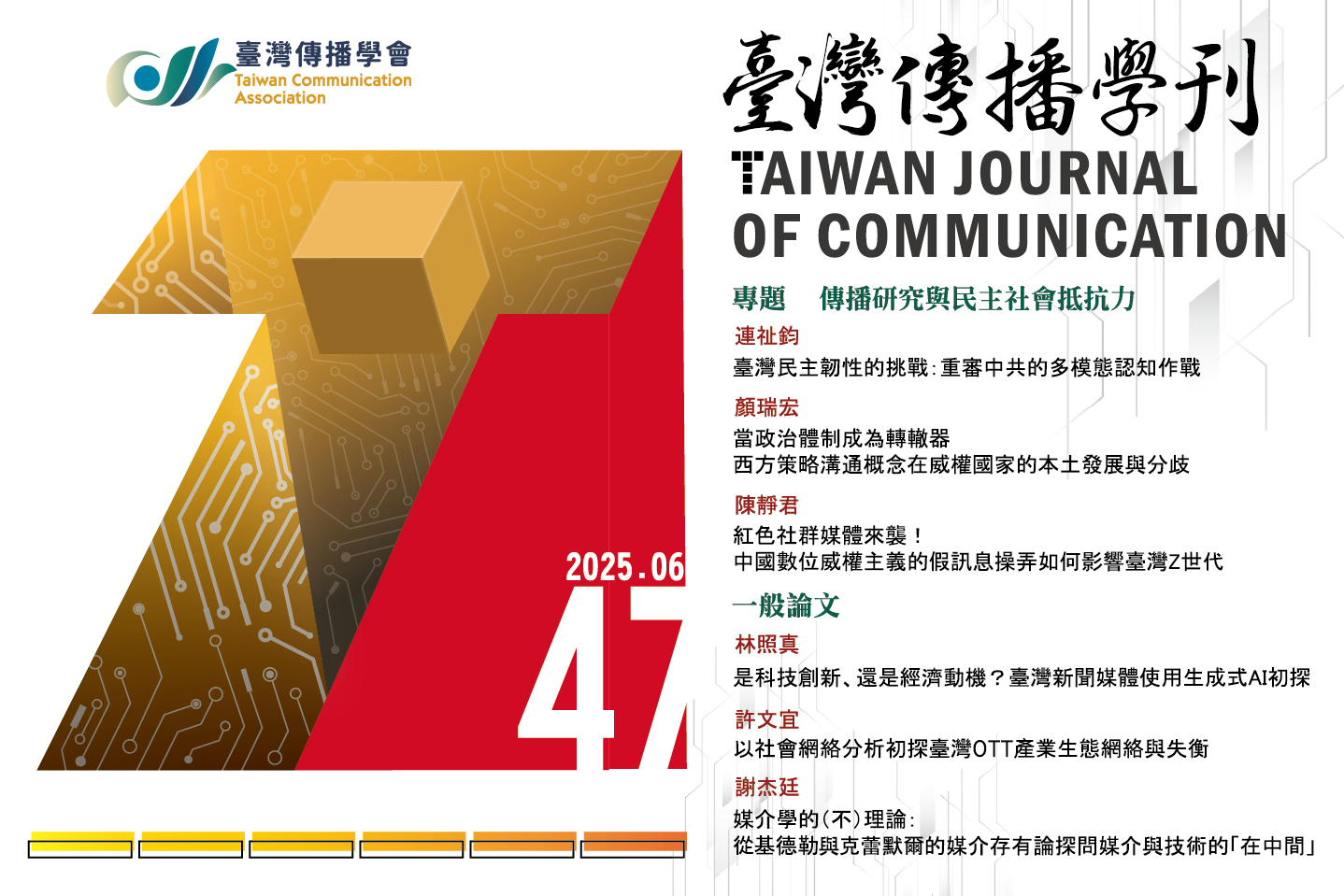 閱覽人數: 2063
閱覽人數: 2063
June
2025
No. 47
傳播研究與民主社會抵抗力
Communication research and the resistance of democratic societies頁數:61 - 110
作者(中)
顏瑞宏
作者(英)
Jui-Hung Yen
關鍵詞(中)
反射性控制、本土化、威權重心、訊息戰、策略溝通、輿論戰
關鍵詞(英)
reflexive control, localization, authoritarian gravity centres, information war, strategic communication, public opinion warfare
中文摘要
當前各國的策略溝通概念均是受到美國經驗的啟發,但囿於不同政治體制,威權與民主國家在實務上,還會因國際處境、戰略需求及歷史經驗的影響,形構出迥異的樣貌。本文首先梳理了美國策略溝通典範的發展歷程,做為理解共同概念的線索,接著理清威權國家的本土化內涵,指出訊息戰、輿論戰分別是俄羅斯及中國對策略溝通的概念化。最後,針對威權國家的溝通實踐特徵進行解構,探索其和歐美中心論在策略、時間、受眾及權力維度上的分歧。
英文摘要
The current concept of strategic communications is undoubtedly inspired by the US. However, democratic and authoritarian countries are different in practice due to the influence of global environment, strategic needs and historical experience. This paper sorts out the development of strategic communications paradigm in the US. as a clue to understand the shared concept. The exploration of localization of China and Russia points out information warfare and public opinion warfare are conceptualizations of strategic communications. Finally, the deconstruction of the characteristics of authoritarian state communication practices finds that they emphasize authority-driven, effect-based and information confrontation. The contradictions between the authoritarian and democratic states are aggression or defense; false opacity or true transparency; seeking control or dialogue; triggering illusions or fact-based emotions. These differences are reflected in strategy, timing, audience, and power, including not rejecting unethical measures, allowing unplanned short-term actions, prioritizing internal resonance in external messages and centering on senders.